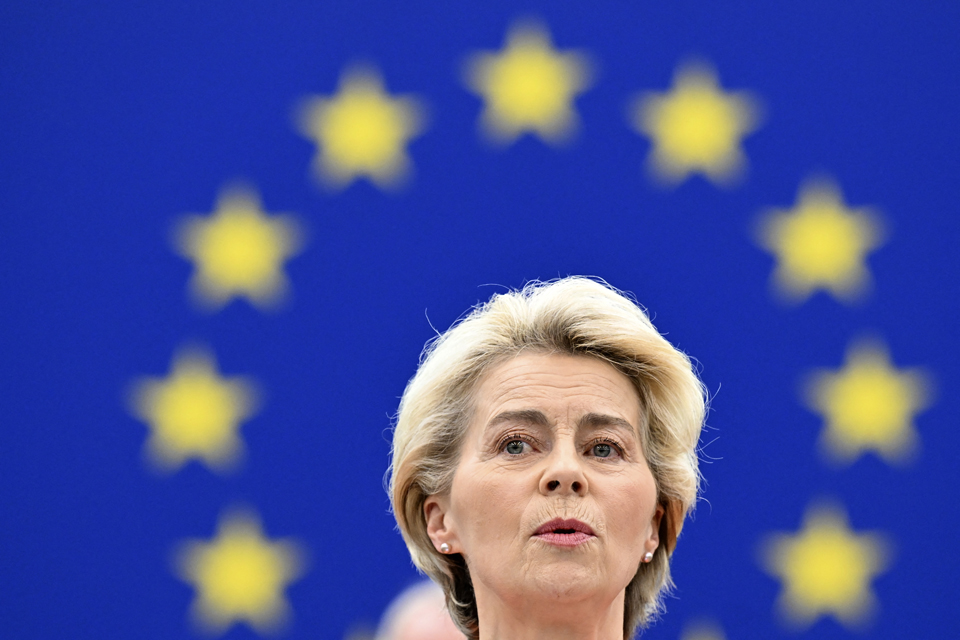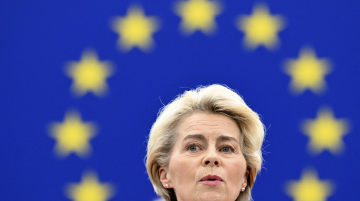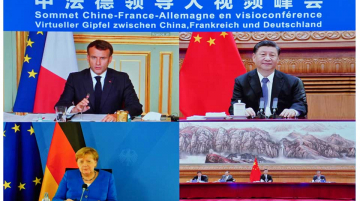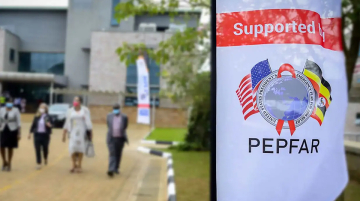
By Lukas Fiala
With Europe scrambling to adjust to a world in rapid transition, two key events will shape the continent’s ability to sustain competition with China across the Global South. The first was exemplified by Germany’s election last Sunday, which heralded a historic win for the far-right and -left, rendering the country more difficult to govern – especially on divisive issues such as foreign aid and development assistance.
Number two has played out over the past two weeks with U.S. attempts at ending Russia’s war in Ukraine behind Europe’s back, while urging European capitals to shoulder the security responsibilities tied to a potential post-war security architecture.
The shift to the fringes of the political spectrum, especially the Eurosceptic far right, and the likelihood of substantial European troop deployments and reconstruction engagements in Ukraine are bound to affect Europe’s role in global affairs for the next decade and beyond.
The former renders collective action on the European level more difficult and may challenge development finance programmes that do not align with the parochial imaginary of far-right politics. Conversely, the latter will tie up a significant proportion of European financial, military and cognitive capacity, thus potentially weakening existing commitments across the Asia-Pacific, Africa and beyond.
The challenge is indeed enormous. Estimates for the post-war reconstruction of Ukraine range from €500 billion to €1 trillion, subject to increase as the war continues. The considerable capitalisation of the EU’s flagship development finance initiative – the Global Gateway – with €300 billion from 2021-2027 pales in comparison.
And reconstruction will not be the only demand on European wallets. Consider the long-term cost of stationing enough troops in Ukraine to guarantee peace. While hardly imaginable without US support, it is likely possible for every major European army to contribute a battalion to support peace operations after the war ends. Given the obvious need for troop rotation and logistical support, such deployments do not come cheap.
This comes on top of the real danger of Russian grey zone warfare – from disinformation and interference in elections to the sabotage of critical infrastructure including pipelines and subsea cables. Europe will have to invest to become more resilient as Washington shifts its focus across the Pacific.
The current situation has already brought about resource allocations. Take a close look at the UK’s aid budget in recent years, for instance. Spending on refugees within the UK has increased sharply from £916 million in 2021 (13% of all bilateral aid) to £3.69 billion (38%) in 2022 and £4.273 billion (43%) in 2023.
Confronted with a seismic challenge that occupies the minds of policy makers and political leaders, European governments will also confront a cognitive problem. While it is understandable that Russia’s war in Ukraine, a conflict close to home, dominates European news cycles, ongoing responses to the war may diminish Europe’s ability to focus on issues that would otherwise receive our attention. It seems the forgotten war in Sudan and the dire humanitarian situation in Afghanistan have long disappeared from the list of policy priorities and public discourse.
All this is of course not to say that Europe should not help Ukraine rebuild and resist Russian aggression. That’s a strategic and moral necessity. But it is to point to the very real trade-offs that European governments are facing at this critical juncture and their consequences for Europe’s role in the world.
While current times are challenging, they are not hopeless. There is, in fact, a tremendous opportunity to re-envision a continent plagued by a lack of geopolitical acumen and collective vision. From accelerating strategic EU enlargement to investing into a secure continental future.
But challenges of this magnitude require bold leadership, new ideas, and a willingness to listen to and understand those outside our borders. While these attributes do not necessarily come easily to the “old continent,” it is never too late to learn to avoid a lost decade.
Lukas Fiala is the project head of China Foresight at LSEIDEAS.










